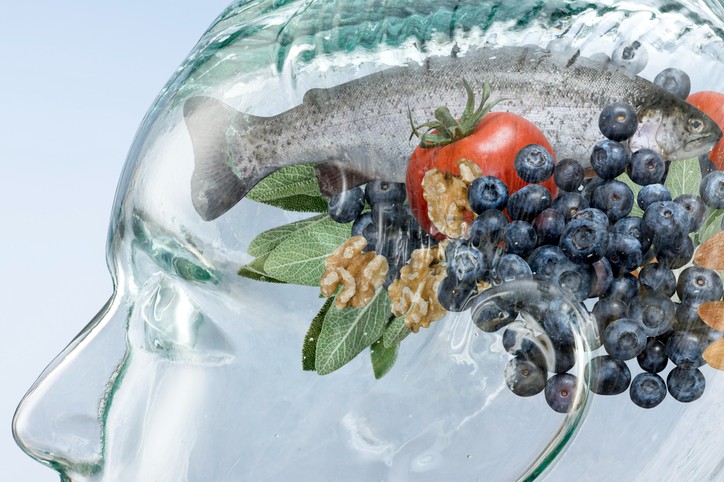“Between homework, exams, extracurriculars, and work-from-home challenges, parents and kids are busier than ever (not to mention anxious, stressed, and exhausted as we enter year three of the pandemic),” says Lindsey Palmer, MBA, MS, RDN,VP of nutrition and industry relations at Chartwells K12, a food service provider that creates custom dining programs and serves 2 million meals in more than 4,500 schools every day. “While there is no single solution to being happier and healthier, there is research that shows specific foods can impact the way we feel – not just physically but mentally, as well.”
If you’re looking for a mood boost, Palmer suggests considering snacking on these foods or incorporating them into your meals.
Dark Chocolate
“Think again if you are convinced that healthy and crave-able foods don’t belong in the same sentence! Dark chocolate contains small amounts of caffeine and theobromine, which may account for the “lift” experienced when eating it. It also contains organic chemical substances such as flavonoids, which support brain health and happiness, helping kids and parents stay alert during school, at work and at home.”
Yogurt
“If you suffer from anxiety, which has skyrocketed during the pandemic, especially in women and young people, consider adding yogurt to your diet. The probiotics, or healthy bacteria, found in some types of yogurt, may improve mental health and brain function by reducing inflammation and increasing the production of mood-boosting neurotransmitters, to keep you calm.”
Nuts and Legumes
“Need a boost of confidence? Nuts and legumes contain serotonin in large quantities, so regular consumption can help you feel happy, which may also lead to making you feel more confident. Almonds, walnuts, flaxseed, peanuts, cashews, pumpkin seeds, and sunflower seeds are some of the best foods to give you that extra boost of confidence.”
Bananas
“It may be common knowledge that bananas are full of potassium, but what you may not know is that they also contain tryptophan, a brain chemical that helps to regulate mood and keep you happy. Bananas are also a good source of B vitamin folate and having low levels of this vitamin has been linked to depression.”
Broccoli
“This is the perfect vegetable to keep your brain sharp and your smarts in check. Not only is it delicious when roasted with a bit of olive oil, but it also protects your brain. It contains organic compounds such as choline, vitamin K, and vitamin C that can aid in memory function and keep your cognitive ability in tip-top shape.”
Blueberries
“A small but mighty fruit that helps you concentrate and helps protect your brain in ways that can boost short-term memory, concentration, and focus (other red and purple berries like strawberries, raspberries, and blackberries also fit the bill).”
